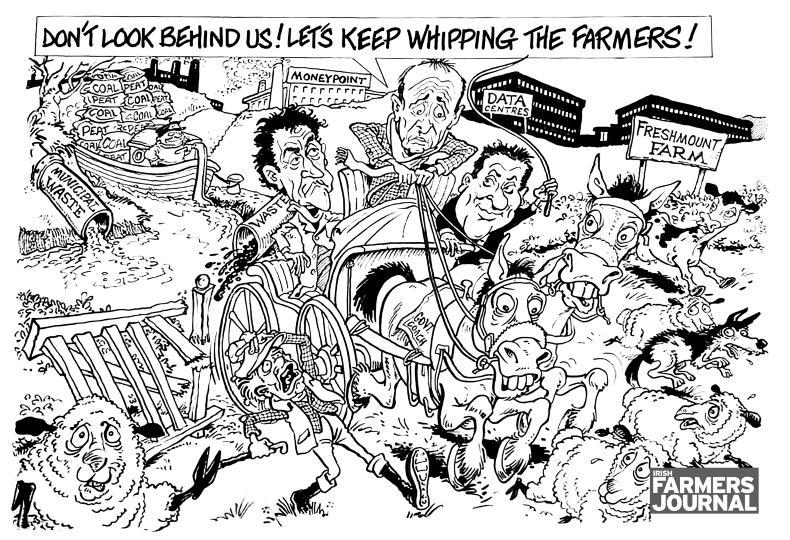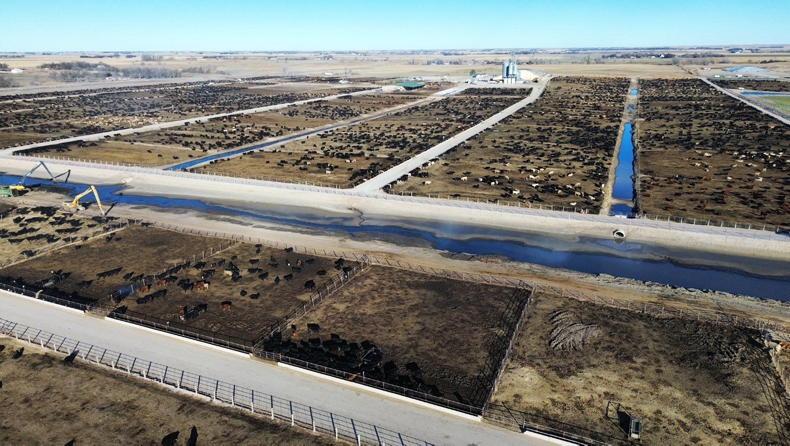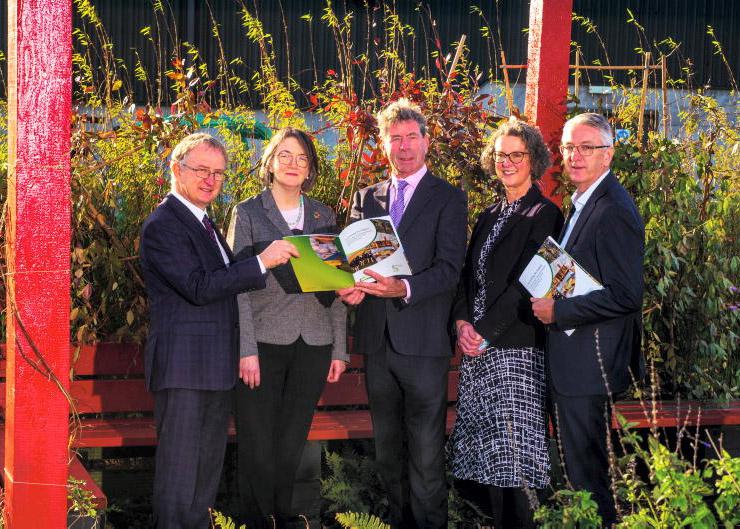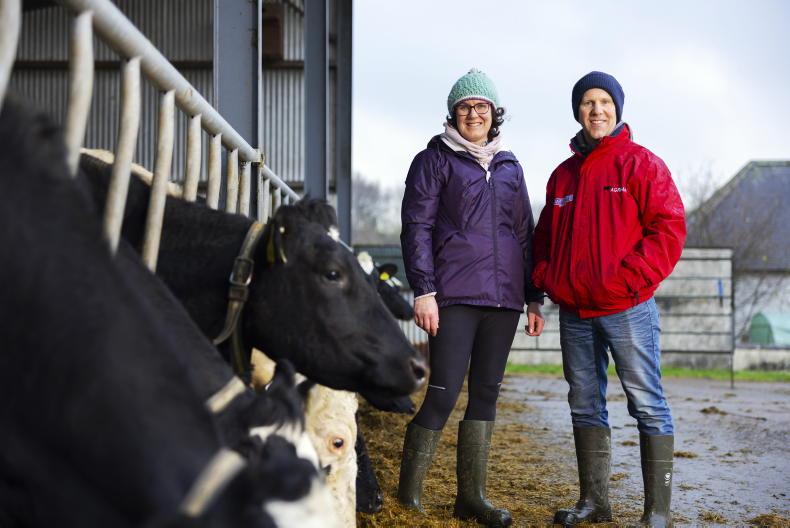There is a stark contrast emerging in Government policy: anything that affects Foreign Direct Investment (FDI) is untouchable with the Government prepared to go to great lengths to protect large multinationals. On the other hand, farmers and their livelihoods are fair game, with sweeping changes to direct payments and the rollout of flawed environmental policies – with the potential to decimate the sector – not just accepted but often championed by Government.
In recent weeks, we have seen the Irish Government face down the US, France, Germany and the UK in a bid to protect FDI by forcing changes to the new global corporate tax plan proposed by the Organisation for Economic Co-operation and Development (OECD).
It follows on from Ireland last year successfully taking the European Commission to the General Court of the European Union to overturn the decision that Apple owed the Irish State €13.1bn in back taxes.
At national level, we continue to see Government policy champion the creation of energy-hungry data centres. These centres import technology and export storage services, leaving Ireland liable for the environmental footprint and financial penalties associated in meeting the huge energy demand. The economic dividend beyond continuing to support FDI by providing the infrastructure necessary to allow large tech companies – headquartered in Dublin – continue to grow is unclear. From an employment perspective, a large livestock mart would create more in the way of jobs.

\ Jim Cogan
This commanding defence of FDI, at global, European and domestic level, is in stark contrast to the approach taken by the Government towards the future of the country’s largest indigenous sector – agriculture. Rather than defend the agri-food sector in the same way as it does FDI, there is a readiness within this Government to play fast and loose with an industry that is employing over 165,000 people (7% of total employment) and generating over €14bn in exports. We see policy positions and future strategies being developed in the complete absence of economic analysis and often ignoring market realities.
Problem sector
The fact that the sector provides the engine to drive economic activity within many rural towns and villages receives little attention. Instead, the attention of this Government has focused on portraying farmers and the wider industry as a “problem sector” – a problem in terms of achieving national emission reduction targets, water quality and biodiversity loss.
It is a narrative that has been jumped on by numerous groups, some using environmental concerns to advance an anti-animal agriculture agenda.
It has seen farmers face sustained attack over the past year. Rather than being recognised for the important role the sector plays within rural communities and the positive contribution it could make to reducing the environmental footprint of feeding the world, the work of Irish farmers has been continuously undermined by senior members of Government and vested interest groups.
The farming community cannot simply stand by and see their sector continue to be ransacked in such and unfair and biased way
Farmers expected such an agenda to be championed by Green Party leader Eamon Ryan, but the degree to which Leo Varadkar and Micheál Martin have become his cheerleaders – while rural TDs remain silent – has created the anger that will be evident at the IFA protests on Friday.
Some will interpret the IFA’s decision to take to the streets as farmers holding the Government to ransom or farmers protesting against change. That would be entirely missing the point. Farmers will turn out on our streets to fight for a fair, honest and balanced discussion on the future of their farms, families and communities, and our industry. The debate to date has served to shame farmers and the industry with a disproportionate focus on what is not working and biased messages coming from State agencies.
The fact that Irish farming is one of the most environmentally efficient in the world is being ignored. The point that we have some of the best water quality in the EU, as highlighted by Matt Dempsey this week, is simply brushed aside.
The opportunity to allow farmers become actively involved in the generation of renewable energy has been overlooked. The complete failure by the Government to secure additional EU supports under the economic recovery fund to assist agriculture in its green transition is swept under the carpet. And most recently the sector’s ability to sequester and retain carbon within soils and hedgerows is facing a smash-and-grab approach as Government seeks to take ownership of these credits.
The farming community cannot simply stand by and see their sector continue to be ransacked in such and unfair and biased way.
Politicians and policymakers would do well to remember the contribution the agri-food sector made to Ireland’s battered economy when the tide went out. Memories appear to be short, particularly among rural TDs. The best prospect for future economic success would be a diverse economic base, with strong indigenous and FDI sectors, where all voices and needs are equally respected and where there are equitable policy measures implemented in tackling the global environmental challenge.
It is time to stop the shame game and restore some respect for Irish farmers through proper engagement.
There is a stark contrast emerging in Government policy: anything that affects Foreign Direct Investment (FDI) is untouchable with the Government prepared to go to great lengths to protect large multinationals. On the other hand, farmers and their livelihoods are fair game, with sweeping changes to direct payments and the rollout of flawed environmental policies – with the potential to decimate the sector – not just accepted but often championed by Government.
In recent weeks, we have seen the Irish Government face down the US, France, Germany and the UK in a bid to protect FDI by forcing changes to the new global corporate tax plan proposed by the Organisation for Economic Co-operation and Development (OECD).
It follows on from Ireland last year successfully taking the European Commission to the General Court of the European Union to overturn the decision that Apple owed the Irish State €13.1bn in back taxes.
At national level, we continue to see Government policy champion the creation of energy-hungry data centres. These centres import technology and export storage services, leaving Ireland liable for the environmental footprint and financial penalties associated in meeting the huge energy demand. The economic dividend beyond continuing to support FDI by providing the infrastructure necessary to allow large tech companies – headquartered in Dublin – continue to grow is unclear. From an employment perspective, a large livestock mart would create more in the way of jobs.

\ Jim Cogan
This commanding defence of FDI, at global, European and domestic level, is in stark contrast to the approach taken by the Government towards the future of the country’s largest indigenous sector – agriculture. Rather than defend the agri-food sector in the same way as it does FDI, there is a readiness within this Government to play fast and loose with an industry that is employing over 165,000 people (7% of total employment) and generating over €14bn in exports. We see policy positions and future strategies being developed in the complete absence of economic analysis and often ignoring market realities.
Problem sector
The fact that the sector provides the engine to drive economic activity within many rural towns and villages receives little attention. Instead, the attention of this Government has focused on portraying farmers and the wider industry as a “problem sector” – a problem in terms of achieving national emission reduction targets, water quality and biodiversity loss.
It is a narrative that has been jumped on by numerous groups, some using environmental concerns to advance an anti-animal agriculture agenda.
It has seen farmers face sustained attack over the past year. Rather than being recognised for the important role the sector plays within rural communities and the positive contribution it could make to reducing the environmental footprint of feeding the world, the work of Irish farmers has been continuously undermined by senior members of Government and vested interest groups.
The farming community cannot simply stand by and see their sector continue to be ransacked in such and unfair and biased way
Farmers expected such an agenda to be championed by Green Party leader Eamon Ryan, but the degree to which Leo Varadkar and Micheál Martin have become his cheerleaders – while rural TDs remain silent – has created the anger that will be evident at the IFA protests on Friday.
Some will interpret the IFA’s decision to take to the streets as farmers holding the Government to ransom or farmers protesting against change. That would be entirely missing the point. Farmers will turn out on our streets to fight for a fair, honest and balanced discussion on the future of their farms, families and communities, and our industry. The debate to date has served to shame farmers and the industry with a disproportionate focus on what is not working and biased messages coming from State agencies.
The fact that Irish farming is one of the most environmentally efficient in the world is being ignored. The point that we have some of the best water quality in the EU, as highlighted by Matt Dempsey this week, is simply brushed aside.
The opportunity to allow farmers become actively involved in the generation of renewable energy has been overlooked. The complete failure by the Government to secure additional EU supports under the economic recovery fund to assist agriculture in its green transition is swept under the carpet. And most recently the sector’s ability to sequester and retain carbon within soils and hedgerows is facing a smash-and-grab approach as Government seeks to take ownership of these credits.
The farming community cannot simply stand by and see their sector continue to be ransacked in such and unfair and biased way.
Politicians and policymakers would do well to remember the contribution the agri-food sector made to Ireland’s battered economy when the tide went out. Memories appear to be short, particularly among rural TDs. The best prospect for future economic success would be a diverse economic base, with strong indigenous and FDI sectors, where all voices and needs are equally respected and where there are equitable policy measures implemented in tackling the global environmental challenge.
It is time to stop the shame game and restore some respect for Irish farmers through proper engagement.












SHARING OPTIONS